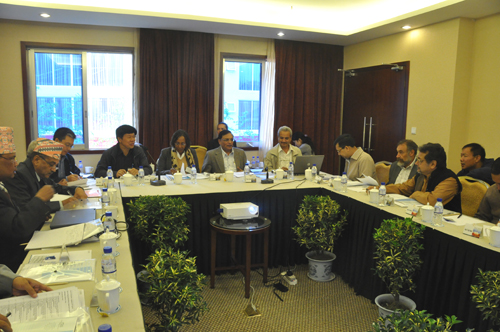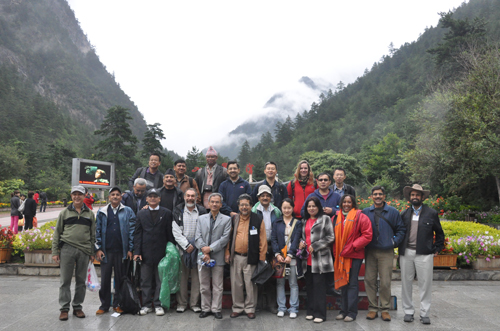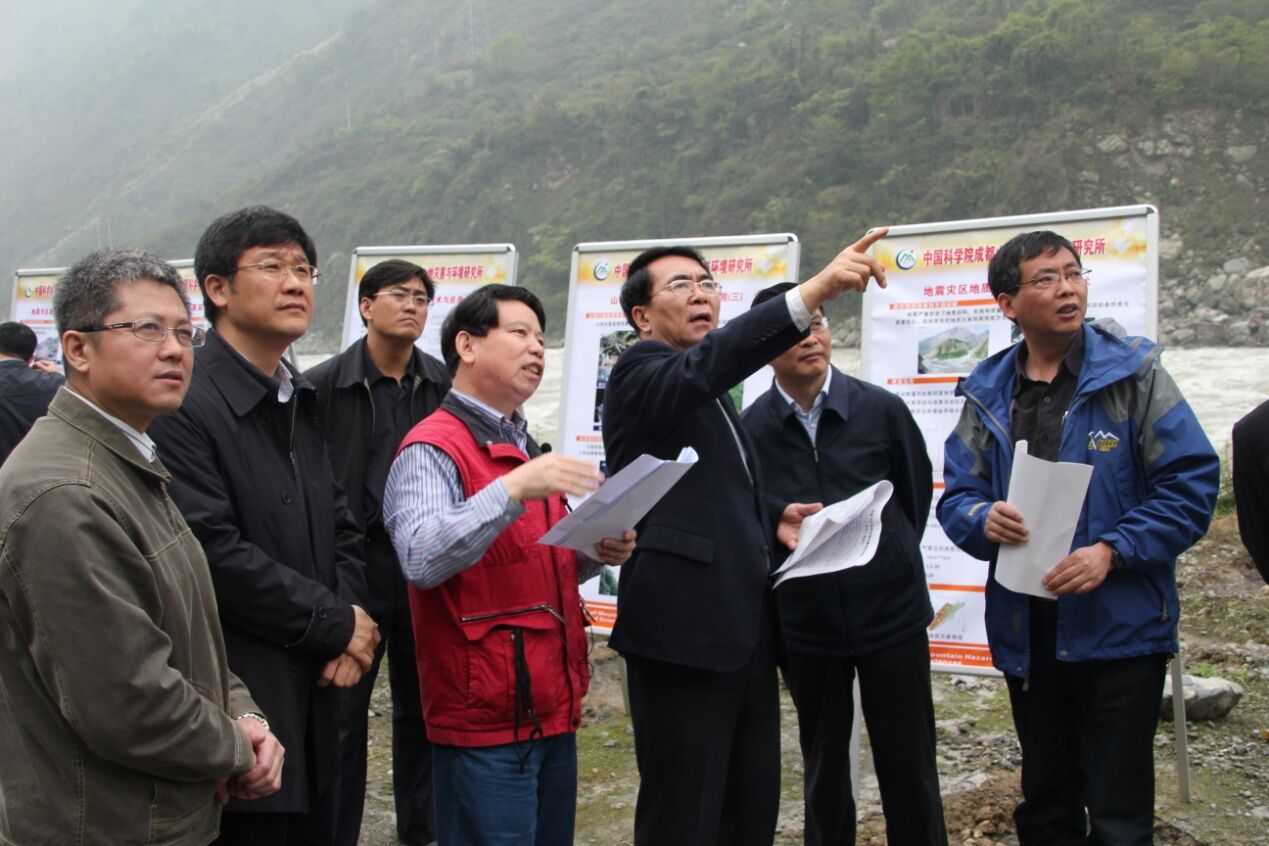The Second Regional Workshop on the Kailash Sacred Landscape Conservation Initiative (KSLCI) was held from 4 to 6 September 2010, in Jiuzhaigou, Sichuan, China.
The workshop was organized by the International Centre for Integrated Mountain Development (ICIMOD) and hosted by the Chinese Committee on ICIMOD (CN-ICIMOD) and Chengdu Institute of Mountain Hazard and Environment Research (IMHE), CAS, supported by the United Nations Environment Programme (UNEP).
 |
| The Second Regional Workshop (Picture by IMHE) |
Representatives from China, India and Nepal discussed the initial steps in developing a regional cooperation framework for the Kailash Sacred Landscape, including a feasibility report, conservation strategy and environmental monitoring plan.
Representatives of the lead partners – the Institute of Geographic Sciences and Natural Resources Research (IGSNRR), CAS, GB Pant Institute of Himalayan Environment and Development (GBPIHED,), India, and the Central Department of Botany, Tribhuvan University, Nepal – described the progress in the development of a conservation strategy and environmental monitoring plan. ICIMOD presented a regional feasibility assessment that included delineation of the target landscape, a policy review, and a synthesis of feasibility assessments from each country.
25 participants representing 14 institutions discussed a draft outline for developing a ‘Regional Cooperation Framework (RCF) Agreement’. Mr Surya Prasad Joshi, Joint Secretary of the Ministry of Forests and Soil Conservation of the Government of Nepal mentioned that the Kailash programme should also benefit from the two separate bilateral agreements of the Government of Nepal with its neighbours India and China. Dr Elizabeth Migongo-Bake of UNEP emphasised the importance of embedding an ecosystem approach for optimising landscape services in the programme development. Dr Shi Peili of IGSNRR expressed the need for integrated approaches and technical cooperation between the countries. The Director of GBPIHED, Dr LMS Palni, emphasised the participatory and people-centred approach that is being adopted in the preparation of the regional cooperation framework. Dr Eklabya Sharma of ICIMOD presented the design and vision of the Initiative and briefly explained the programme of work for the start-up phase of 18 months commencing February 2011, and outlined elements for two 5-year implementation phases from the middle of 2012. The three countries will finalize their reports on the conservation strategy and environmental monitoring plan after the discussions at the workshop.
 |
| Representatives visited Juizhaigou National Park (Picture by IMHE) |
During the workshop, participants visited the biodiversity and cultural conservation initiatives in the Juizhaigou National Park. This park located at the edge of the Eastern Tibetan Plateau is a UNESCO World Heritage Site where ecotourism is strongly linked with conservation.
The Kailash Landscape covers the area linked culturally and geographically to the sacred mountain, which is also known as Kang Rinpoche, Gangrenboqi Feng, and Kailasa Parvata. The KSLCI programme focuses on developing a transboundary regional cooperation framework for conservation and sustainable development. The first regional workshop on the Kailash Sacred Landscape Conservation Initiative was held at Almora, Uttarakhand, India in April 2010. The Third Regional Workshop will be held from 16-18 December 2010 in Kathmandu, Nepal.
